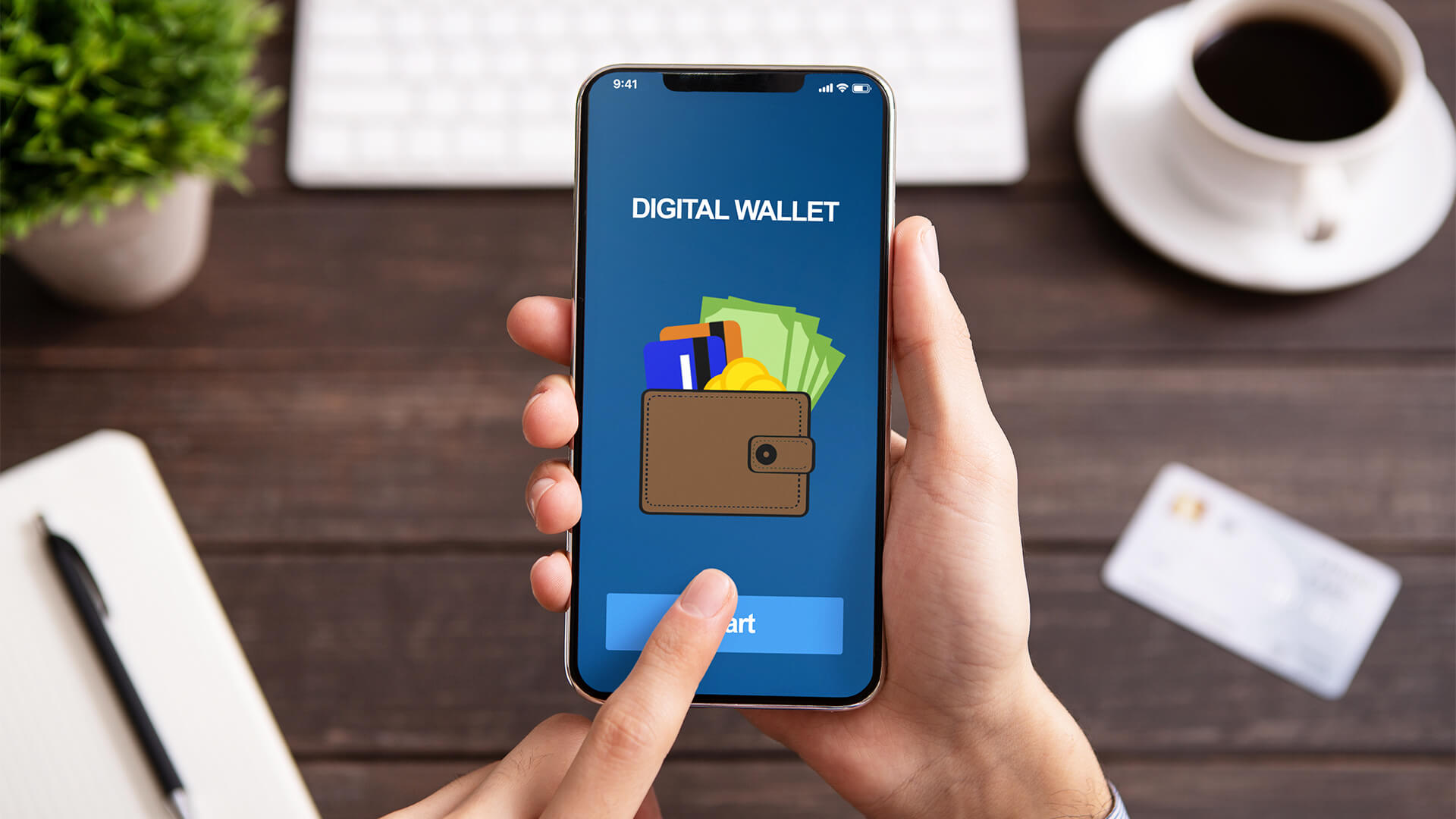
By Richard Conn – Senior Director, Demand Generation, 8×8
If you run your own business, the upsurge in the popularity of digital wallets and mobile wallets won’t have escaped your attention. If you’re thinking about starting to offer it as a payment method but aren’t quite sure yet, this guide is for you.
What is a digital wallet?
A digital wallet is a kind of virtual wallet that stores information. This could include credit card data, digital cash, crypto savings, loyalty or membership card details, and even coupons. The core attraction for customers is its convenience. Being able to keep all of that information in one place is much easier than carrying around a pile of plastic cards or pieces of paper.
One of the most common varieties of digital wallet is the mobile wallet. There are a plethora of mobile wallet apps out there – for example, Apple Pay, Samsung Pay, and Google Pay – which enable consumers to make mobile payments with a single tap.
How mobile wallets work
Mobile wallets generally work in three ways: using NFC (near-field communication), via POS (point of sale) tech, and with tokenisation for security.
NFC: Near-field communication uses wireless technology to enable two devices to share small payloads of information with one another – in this case, payment details. The two devices have to be within around 4 cm of each other for the connection to function.
POS: Retailers can take mobile payments in-store by using specialised point of sale software. There are a number of solutions available, most of which allow you to take traditional chip and pin cards as well. As with any online-based business software like VoIP hosting, you’ll need to make sure you have a reliable internet connection.
Tokenisation: To keep sensitive data safe and protect against theft, mobile wallets use a process called tokenisation. The mobile wallet operator sends the customer’s card data to their card’s network. The network replaces the card data with a token and sends it back to the wallet. The mobile wallet receives this token and uses it to make payments.
Pros of digital wallets
When you’re considering investing in something new for your business such as a hosted IP phone system or data management tool, you need to be clear about the benefits it will bring. Here are a few of the advantages of implementing digital wallet transaction functionality.
Saves time
Speed is of the essence, and there’s no payment method faster than digital wallets. Offering your customers the chance to pay with mobile wallets in-store will also reduce queueing time and get things moving.
There’s no more waiting around for the customer to find their loyalty card or for the till operator to find the correct change. The whole process is as fast and easy as answering calls with a small business VoIP phone system, and it’s just as reliable.
Improves the customer experience
Every successful business knows the value of putting customer experience front and centre. The more payment options you offer your customers, the happier they will be.
The increased speed and convenience of the transaction means less waiting around for the customer. It’s fuss-free and effective, which is good news for everyone.
Enables access to real-time data
If you already manage inventory on Shopify or another similar platform, you may be familiar with having ready-made customer analytics available. Many digital wallets allow you to capture real-time customer data that can be very valuable to compel consumers to shop online more.
Digital wallets enable you to see a customer’s shopping history and preferences, which can prove useful if you’re planning a marketing campaign targeted at existing customers.
Straightforward to use
It’s a simple matter to get up and running with digital wallet payments, whether online or in-store. You just need to apply for one of the many merchant accounts from card processing companies available in your area.
Cons of digital wallets
As with any other business solution, there are a few things to be aware of before you jump in.
Needs reliable internet connection
Just as with SIP phone lines you need a reliable internet connection if digital payments are going to work. But, not all areas of the UK have perfect internet coverage.
It can be tempting for smaller startups to depend on contactless POS systems for payments. The initial cost outlay tends to be relatively low and for a business that has smallish footfall like, say, a coffee shop or a small boutique gift store, going cash-free from the start can seem like a good idea.
Most of the time, this is a perfectly adequate strategy, but if you do choose to do this, it’s best to have a backup payment system in place just in case. Something like a card terminal that has offline functionality is a possibility and will mean you’re still not obliged to carry cash.
Be careful about pricing
There are some great deals out there for vendors, but you need to do your research. There are a number of fees to take into consideration, such as credit card processing fees, merchant account fees, authorisation payments, and service fees or service charges.
You’ll find that many providers charge more for cardless transactions than for ones where the card is physically present. That’s because they want to mitigate the higher risks of contactless transactions. The disparity varies, but you’ll typically see cardless transaction fees coming in at around 1.25% higher.
Fraud
Digital wallets do a very good job on security, but the risk of fraud is still not completely eliminated. From the customer’s point of view, transactions made with digital wallets are slightly riskier than ones made with credit cards, since they are not necessarily covered by the consumer protections banks provide in the case of credit card transactions.
Either way, it puts the merchant at risk of unwelcome chargebacks should something go wrong. So it’s vital to keep an eye on whether this is becoming a regular problem for you.
How to get set up for using digital wallets
Luckily, setting up your business to take digital or mobile wallet payments is a straightforward matter. Online-only vendors simply need to set up a merchant account with the operators they want to work with. Customers will store their details securely on the website and transactions will be processed automatically.
Vendors operating from physical stores will need a POS terminal that can accept digital wallets. This means that it will require NFC technology to read the devices making the payments.
If you already have an established relationship with one or more payment providers, it’s worth getting in contact to ask them whether they have digital wallet solutions available.
A note on security
We’ve mentioned security a few times in this article, but it’s worth mentioning again. Just as you’d complete Auditboard security audits to ensure your systems are secure you want to know that you can trust digital wallets to keep sensitive data secure throughout.
For starters, digital wallets encourage the use of several security features to ensure the payment device or account is only used by the customer who owns it. Face ID, fingerprint ID, PIN codes, and two-factor authentication protocols are standard. They might not benefit from the anonymity offered by tech from crypto wallet companies, but that kind of software is not ideal for everyday retail.
The encryption algorithms used in transferring the payment data offer top-level commercial standard security. Although it’s never possible to eliminate the risk of fraud entirely (if someone is lax about their security settings, for example), digital wallets are about as secure a payment method as has yet been invented.
The way of the future
Digital wallets are here to stay. They offer a fast, convenient payment method for customers who don’t want to spend any more time on the mechanics of paying for their purchases than they absolutely have to.
If you’re looking to upgrade your business with modern solutions like marketing analytics software or are looking to streamline your SOX certification process, don’t overlook your customer payment offering. Accepting digital wallet payments is a straightforward process to set up and makes for increased customer satisfaction. And that’s great news for the bottom line.


























